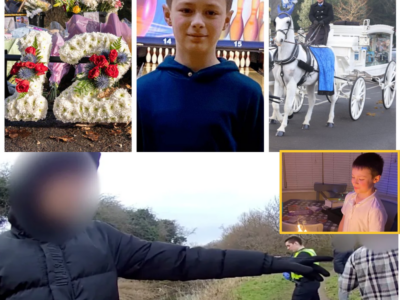In a dazzling display of animated satire, Stephen Colbert transformed The Late Show into a Broadway battlefield, roasting Disney for yanking Jimmy Kimmel’s show off the air. But is this the spark that ignites a full-blown war on comedy?
Thursday night’s episode of The Late Show with Stephen Colbert didn’t just open with a bang—it exploded into a full-blown animated extravaganza that had viewers howling, gasping, and furiously scrolling through social media. Colbert, ever the master of pointed parody, kicked off the hour with a Disney-fied musical number that lampooned ABC’s parent company, The Walt Disney Corporation, for its controversial suspension of Jimmy Kimmel Live!. Titled “Shut Your Trap,” the segment was a razor-sharp riff on “Be Our Guest” from Disney’s 1991 classic Beauty and the Beast, complete with a flamboyant candelabra character straight out of Lumière’s playbook. But this wasn’t your childhood sing-along; it was a scathing takedown of corporate censorship, political pressure, and the chilling effect on free speech in late-night TV.
The animation, produced in-house by The Late Show’s crack team, featured a golden Lumière-esque candelabra voiced with theatrical flair, wielding a matchstick cane and sporting a red snuffer emblazoned with “MAGA.” As the character twirled across a glittering stage reminiscent of the Beast’s enchanted ballroom, the lyrics poured out like molten satire: “Listen up, in light of Jimmy Kimmel’s suspension, ABC’s parent company, the Walt Disney Corporation, has a little message for all the employees… Shut… your… trap! We are warning you to cut the crap. Our Dear Leader’s skin is thinner than a sheet of plastic wrap.” The song escalated with jabs at “kissing ass” as the new corporate gospel, warnings against mocking “Donny T.” (a not-so-subtle nod to Donald Trump), and a cheeky aside about avoiding mentions of Jeffrey Epstein. The punchline? A curtain reveal flashing a photo of FCC Chairman Brendan Carr, Trump’s appointee, captioned with the lyric “or he’ll hit you with this turd”—a visual gut-punch tying the regulatory threats directly to the drama.
Colbert, emerging from the wings post-performance, deadpanned, “Disney, if you’re watching—and I know you are, because you own everything—consider this our enchanted rose. Wilt it at your peril.” The crowd erupted, and clips of the number went supernova online, racking up millions of views within hours. But beneath the glitter and glee, this was no mere gag. It was Colbert’s unequivocal stand in solidarity with his late-night brethren, Jimmy Kimmel, whose show was yanked amid a firestorm of political backlash.
To understand the fury fueling Colbert’s opener, one must rewind to the spark: the assassination of conservative firebrand Charlie Kirk on September 10, 2025. Kirk, founder of Turning Point USA and a vocal Trump ally, was gunned down in what authorities quickly labeled a politically motivated attack. The nation reeled, but so did the airwaves. Five days later, on September 15, Kimmel aired a monologue that danced perilously close to the third rail. Lamenting how conservatives were scrambling to disavow the shooter, Tyler Robinson—a self-proclaimed leftist with a history of anti-Trump posts—while politicizing the tragedy, Kimmel quipped, “It’s like watching a kid flush his goldfish and then blame the cat.” He didn’t mince words about Trump’s response either, accusing the former president of exploiting the grief for rally fodder rather than fostering unity.

The backlash was swift and seismic. Right-wing influencers branded Kimmel’s words “sickening” and “incendiary,” claiming they inflamed tensions and even speculated—without evidence—that they might have inspired the killer. Enter Brendan Carr, the Trump-appointed FCC chair whose tenure has been a crusade against perceived liberal bias in media. On The Benny Johnson Show just two days later, Carr thundered that Kimmel’s remarks were “truly sick” and not in the “public interest,” hinting at investigations into ABC’s broadcast license, fines, or worse. Citing his role in Project 2025’s media reform blueprint, Carr positioned the threat as a defense of “fairness,” but critics saw it as classic jawboning—government intimidation of speech.
By September 17, the dominoes fell. ABC, under Disney CEO Bob Iger and co-chair Dana Walden, suspended Jimmy Kimmel Live! indefinitely, citing “safety concerns” for staff amid death threats and doxxing. Affiliates like Nexstar Media Group and Sinclair Broadcast Group—major conservative-leaning station owners—pulled the show from their lineups, with Sinclair even floating a Charlie Kirk tribute special before pivoting to YouTube. Reruns of Celebrity Family Feud filled the void, a humiliating placeholder for a franchise that’s been a late-night staple since 2003. Kimmel, who’d just inked a three-year extension through 2026, went radio silent, but his allies didn’t.
Colbert’s “Shut Your Trap” wasn’t a solo act; it was the opening salvo in a chorus of condemnation from the comedy cabal. Jon Stewart, returning to The Daily Show, called the suspension “a blatant assault on freedom of speech,” likening it to “Putin’s playbook for silencing dissent.” Seth Meyers devoted his “Closer Look” to eviscerating Carr as a “MAGA mascot masquerading as a regulator,” while John Oliver aired a Last Week Tonight deep-dive on FCC overreach, complete with archival footage of Trump’s media vendettas. Even David Letterman, long retired, dusted off his mic for a guest spot on The Tonight Show, urging, “Comedy dies when corporations cave to bullies.” Over 400 entertainers, from Tom Hanks to Meryl Streep, signed an ACLU petition decrying the move as a First Amendment gut-punch, while Howard Stern blasted Disney on SiriusXM: “Bob Iger, you’re folding like a lawn chair. Grow a spine.”

The streets echoed the studios’ outrage. On September 18—the very night of Colbert’s broadcast—hundreds of WGA and SAG-AFTRA members marched outside Disney’s Burbank lot, chanting “Protest ABC – For Comedy, Criticism, and the 1st Amendment!” Horns blared from passing cars, and videos captured the electric solidarity, shared widely by Deadline on X. Protests rippled to New York and LA, with everyday fans joining in. Former Disney CEO Michael Eisner fired off an X thread questioning Iger’s leadership: “Suspending Kimmel? That’s not protecting the brand; that’s torching it. Jimmy’s the talent that keeps us relevant.” Barack Obama weighed in too, tweeting, “When satire becomes a safety risk, democracy’s in trouble. Stand with Kimmel.” Pete Buttigieg echoed the sentiment, calling it “a canary in the coal mine for press freedom.”
Public fury translated to wallets. Disney+ and Hulu cancellation pages crashed under the deluge, with estimates pegging subscriber losses in the tens of thousands overnight. A YouGov poll on September 18 revealed 50% disapproval of the suspension, with 44% citing the federal government as the top free-speech threat. Stock watchers noted a 0.67% dip in Disney shares, evaporating billions in market value—blamed partly on the boycott buzz. Internationally, Dutch comedian Arjen Lubach skewered the saga on LUBACH, while South Park rushed out episodes mocking Trump and Carr as cartoonish censors.
The resolution came faster than expected. On September 22, Disney blinked, announcing Jimmy Kimmel Live!’s return the next day. Kimmel’s comeback episode shattered records: 6.26 million live viewers, plus 26 million streams, as he delivered an emotional monologue. “It was never my intention to make light of a young man’s murder,” he said, voice cracking, before pivoting: “But when the government threatens your job for a joke, that’s not safety—it’s suppression.” Guests Glen Powell and Sarah McLachlan rallied around him, the latter canceling a gig in protest solidarity. Nexstar and Sinclair held out until September 26, but advertiser boycotts and more protests forced their hand.
In the aftermath, the Kimmel saga has rippled far beyond Burbank. Legal scholars decry Carr’s tactics as unconstitutional overreach, drawing parallels to authoritarian media crackdowns. Disney faces shareholder lawsuits probing political influences on the decision, while late-night TV hums with renewed defiance—Colbert and Kimmel even teased a “bromance” crossover, per recent reports. The animated opener wasn’t just entertainment; it was a manifesto. As Colbert sang, “Don’t insult our Great Dictator—or your show will be scrapped.” In 2025’s polarized panorama, that warning feels less like parody and more like prophecy. Late-night comedy, battered but unbowed, reminds us: Laughter is rebellion, and silencing it only makes the punchlines louder.


